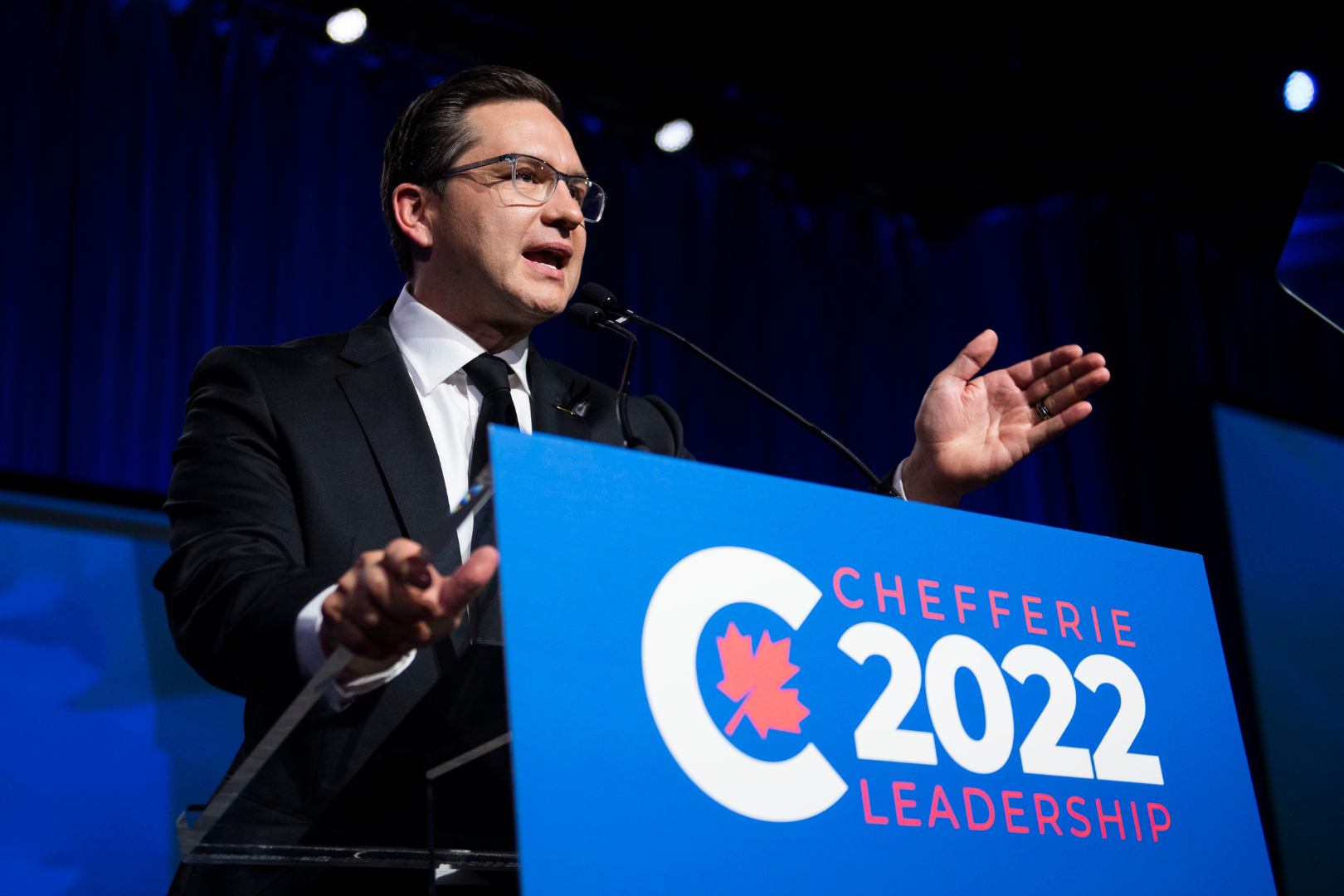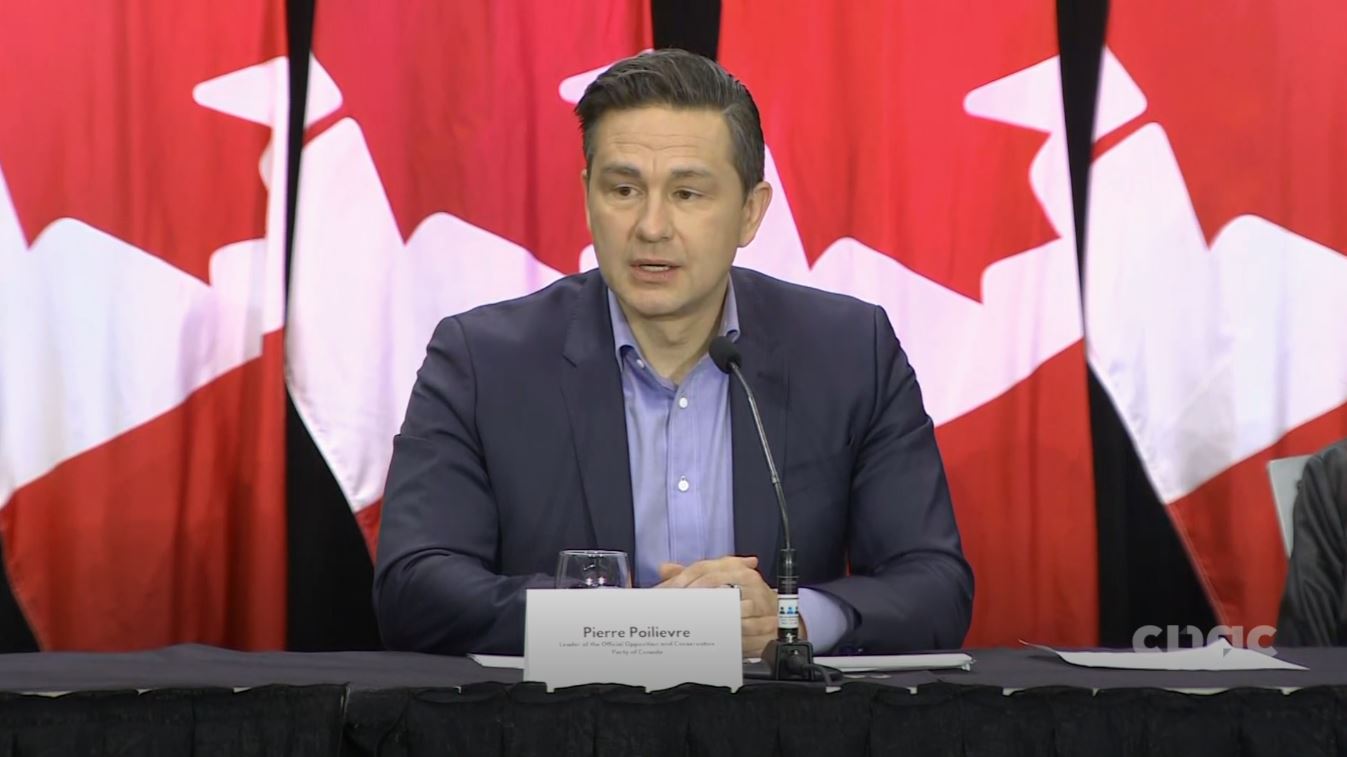Is Pierre Poilievre Bilingual? Exploring His Linguistic Skills And Political Impact
Canada's political landscape has always been a melting pot of cultures and languages, and the question "Is Pierre Poilievre bilingual?" is more relevant than ever in today's multicultural society. As a prominent Conservative Party member and a rising star in Canadian politics, Pierre Poilievre's linguistic abilities have become a focal point of discussion. Understanding his bilingualism sheds light on his potential to unite Canada's diverse population.
Pierre Poilievre's career has been marked by his charisma, outspoken nature, and dedication to conservative values. His ability to communicate effectively with both English and French-speaking Canadians is crucial in a country where language plays a significant role in shaping political discourse. This article delves deep into whether Pierre Poilievre is truly bilingual and examines the implications of his linguistic capabilities.
From his early life to his current political endeavors, this piece provides a comprehensive overview of Pierre Poilievre's bilingualism. We will explore his educational background, public appearances, and the impact of his language skills on his political career. By the end of this article, you will have a clear understanding of whether Pierre Poilievre can truly claim bilingualism and what it means for Canada's future.
Read also:William Abadie The Rising Star In The Entertainment Industry
Table of Contents
- Biography of Pierre Poilievre
- Defining Bilingualism
- Early Life and Education
- Political Career
- Language Use in Public Forums
- Expert Opinions on Poilievre's Bilingualism
- Public Perception of Poilievre's Bilingualism
- Statistical Analysis of Bilingualism in Canadian Politics
- The Importance of Bilingualism in Canadian Politics
- Conclusion and Final Thoughts
Biography of Pierre Poilievre
Pierre Poilievre is a well-known Canadian politician who has made significant strides in the Conservative Party. Born on October 15, 1979, in Ottawa, Ontario, Poilievre's early years were spent in a household that valued education and public service. Below is a brief overview of his personal and professional life:
Personal Data
| Full Name | Pierre Poilievre |
|---|---|
| Date of Birth | October 15, 1979 |
| Place of Birth | Ottawa, Ontario, Canada |
| Occupation | Politician |
| Political Affiliation | Conservative Party of Canada |
Pierre Poilievre's journey into politics began at a young age, with a strong foundation in public speaking and advocacy. His educational background and early career choices have shaped his current role as a leading figure in Canadian politics.
Defining Bilingualism
Before we address the question "Is Pierre Poilievre bilingual?", it's essential to define what bilingualism means in the Canadian context. Bilingualism refers to the ability to fluently speak, read, and write in both English and French, Canada's two official languages. This skill is crucial for politicians who wish to represent the interests of all Canadians.
According to Statistics Canada, approximately 17.9% of Canadians are bilingual, with the majority residing in provinces like Quebec and Ontario. The ability to communicate effectively in both languages is often seen as a prerequisite for national political leadership.
Early Life and Education
Pierre Poilievre's early life provides insight into his linguistic development. Growing up in Ottawa, a predominantly bilingual city, he was exposed to both English and French from an early age. His educational journey further reinforced his language skills, as he attended schools where both languages were emphasized.
During his time at the University of Ottawa, Poilievre honed his communication skills and developed a deeper understanding of Canada's linguistic diversity. This educational background has undoubtedly contributed to his current linguistic abilities.
Read also:Movierul Your Ultimate Guide To The World Of Movies
Political Career
Pierre Poilievre's political career has been marked by his ability to connect with diverse audiences. As a Member of Parliament for Carleton, he has consistently addressed both English and French-speaking constituents, showcasing his bilingual capabilities.
Key Political Achievements
- Elected as MP for Nepean—Carleton in 2004
- Served as Minister of State for Democratic Reform
- Appointed as Minister of Employment and Social Development
Throughout his career, Poilievre has demonstrated a commitment to representing all Canadians, regardless of their linguistic background. His ability to navigate political discourse in both languages has been a defining feature of his leadership.
Language Use in Public Forums
One of the most compelling arguments for Pierre Poilievre's bilingualism is his consistent use of both English and French in public forums. Whether addressing Parliament or participating in interviews, Poilievre frequently switches between the two languages, demonstrating fluency and comfort.
For instance, during a recent interview with Radio-Canada, Poilievre seamlessly transitioned between English and French, addressing questions from a predominantly French-speaking audience. Such instances reinforce the notion that he is indeed bilingual.
Expert Opinions on Poilievre's Bilingualism
Language experts and political analysts have weighed in on the question of Pierre Poilievre's bilingualism. Many agree that his language skills are commendable, though some argue that his proficiency in French may not reach native fluency.
Dr. Jean-Pierre Corbeil, a linguistics expert at the University of Ottawa, states, "Pierre Poilievre exhibits a high level of proficiency in both English and French. While his French may not be flawless, it is certainly sufficient for effective communication in political settings."
Public Perception of Poilievre's Bilingualism
Public perception plays a crucial role in shaping a politician's reputation. When it comes to Pierre Poilievre, opinions are divided. Some Canadians view him as a bilingual leader capable of uniting the nation, while others remain skeptical of his language skills.
According to a recent survey conducted by the Angus Reid Institute, 58% of respondents believe that Poilievre is bilingual, with the remaining 42% unsure or skeptical. This divide highlights the importance of clear communication and transparency in addressing linguistic capabilities.
Statistical Analysis of Bilingualism in Canadian Politics
To better understand the significance of bilingualism in Canadian politics, it's worth examining statistical data. A report by Statistics Canada reveals that 71% of Canadians believe bilingualism is an essential quality in a national leader.
Furthermore, a study published in the Canadian Journal of Political Science found that bilingual politicians tend to receive higher approval ratings from both English and French-speaking constituents. This data underscores the importance of bilingualism in shaping political success.
The Importance of Bilingualism in Canadian Politics
In a country as linguistically diverse as Canada, bilingualism is more than just a skill; it's a necessity. Politicians who can communicate effectively in both English and French have a distinct advantage in reaching a broader audience and addressing the needs of all Canadians.
Bilingualism also fosters unity and understanding, bridging the gap between different cultural and linguistic groups. For Pierre Poilievre, embracing bilingualism is not only a political strategy but also a reflection of his commitment to representing all Canadians.
Conclusion and Final Thoughts
In conclusion, the question "Is Pierre Poilievre bilingual?" can be answered with a resounding yes. While his proficiency in French may not reach native fluency, his ability to communicate effectively in both languages is undeniable. This skill has played a significant role in his political success and continues to shape his leadership style.
We invite you to share your thoughts on this article and Pierre Poilievre's bilingualism in the comments section below. Additionally, explore our other articles for more insights into Canadian politics and culture. Together, let's foster a deeper understanding of the issues that matter most to Canadians.
References:
- Statistics Canada
- Angus Reid Institute
- Canadian Journal of Political Science
- University of Ottawa Linguistics Department

